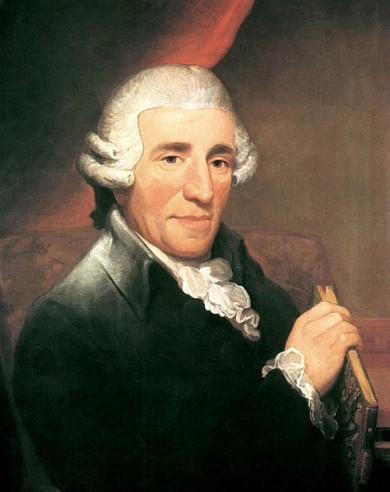“Lord Nelson” mass soars in Seraphic Fire’s Haydn program
While the path-breaking symphonies and string quartets of Franz Joseph Haydn have taken an honored place in the classical repertoire, the composer’s masses and liturgical scores are still too rarely performed. The final six mass settings that Haydn composed for performance at the palaces of Prince Esterhazy, his longtime employer, are among his finest work.
Seraphic Fire artistic director Patrick Dupré Quigley capped an all-Haydn program Friday night at Miami Shores Presbyterian Church with the “Lord Nelson” Mass, one of Haydn’s late masterpieces.
Composed in 1798, the score originally bore the title “Missa in Angustiis” (Mass in Troubled Times). The armies of Napoleon had been attacking Austria and the situation was grave. Around the time of the first performance, news of Napoleon’s defeat at the Battle of the Nile by British forces led by Admiral Horatio Nelson reached Austria and Haydn’s work almost immediately was named for the triumphant military commander.
The dark mood of the time is immediately established by the grave opening orchestral chords in D minor. Quigley utilized an enlarged twenty-voice chorus and their initial cry of “Kyrie eleison” (Lord, have mercy) was heaven-storming. Haydn’s melodic inspiration is at its zenith in this score, the vocal solos often suggesting arias in Haydn or Mozart operas, and the orchestral writing is highly imaginative.
Quigley conducted a version with the wind parts restored. Because his employer had dismissed the wind players, Haydn originally scored the wind writing for organ plus strings, trumpets and percussion. The outstanding recorder (flute) and oboe players of the period-instrument ensemble The Sebastians (now Seraphic Fire’s orchestra of choice) imbued the obbligatos with character and superb musicianship. Orchestral playing throughout the forty-minute score was springy and propulsive, the warm, unison sonority of the strings and ringing peel of the valveless trumpets enlivening the vocal writing at every turn.
Quigley’s keen sense of tempo and pacing matched his skill at vocal balancing. Under his lively direction, Haydn’s music seemed to leap off the page and resound with depth and vigor. In the clear acoustic of the modern Miami Shores sanctuary, choral articulation was spot on. The group’s corporate sound was full and rich, yet alive to hairpin shifts of dynamics and mood. Stormy climaxes in the “Kyrie” and “Benedictus” had requisite weight and power while the joyous “Dona nobis pacem” of the D major finale was voiced with exquisite beauty.
Among an outstanding quartet of vocal soloists, soprano Kathryn Mueller took pride of place. Long one of the choir’s most valuable singers, her clear, bright coloratura projected splendidly over the full choral and instrumental forces. Her ease in the highest register and pure tone enlivened the lengthy solo in the “Benedictus,” the long-breathed phrases perfectly placed. Margaret Lias’ mezzo was secure at the highest and lowest extremes, her burnished tone consistently arresting. The indispensable James Bass, the group’s chorus master, unfurled a deep, rolling bass and Steven Soph firmly assayed the high tenor lines. The entire performance was one of Quigley’s finest achievements.
The performance of the Symphony No. 45 in F-sharp minor (“Farewell”) that preceded the mass was more uneven. Quigley’s tempos in the first two movements were too slow, the strings fell out of tune, and a major horn fluff ended the Adagio on a less than ingratiating note. After retuning between movements, instrumental articulation snapped back to form and a witty staging of the finale found instrumentalists and Quigley all leaving the stage before two lone violins finished the performance.
The concert opened with a crisp reading of the Te Deum for Empress Marie Theresa, the exultant choral sound and vigorous string playing splendidly shaped by Quigley. Hopefully he will present more of Haydn’s great choral works in future seasons.
The program will be repeated 8 p.m. Saturday at All Saints Episcopal Church in Fort Lauderdale and 4 p.m. Sunday at the South Miami Dade Cultural Arts Center. seraphicfire.org; 305-285-9060.
Posted in Performances
Leave a Comment
Sat Feb 14, 2015
at 2:04 pm
No Comments
